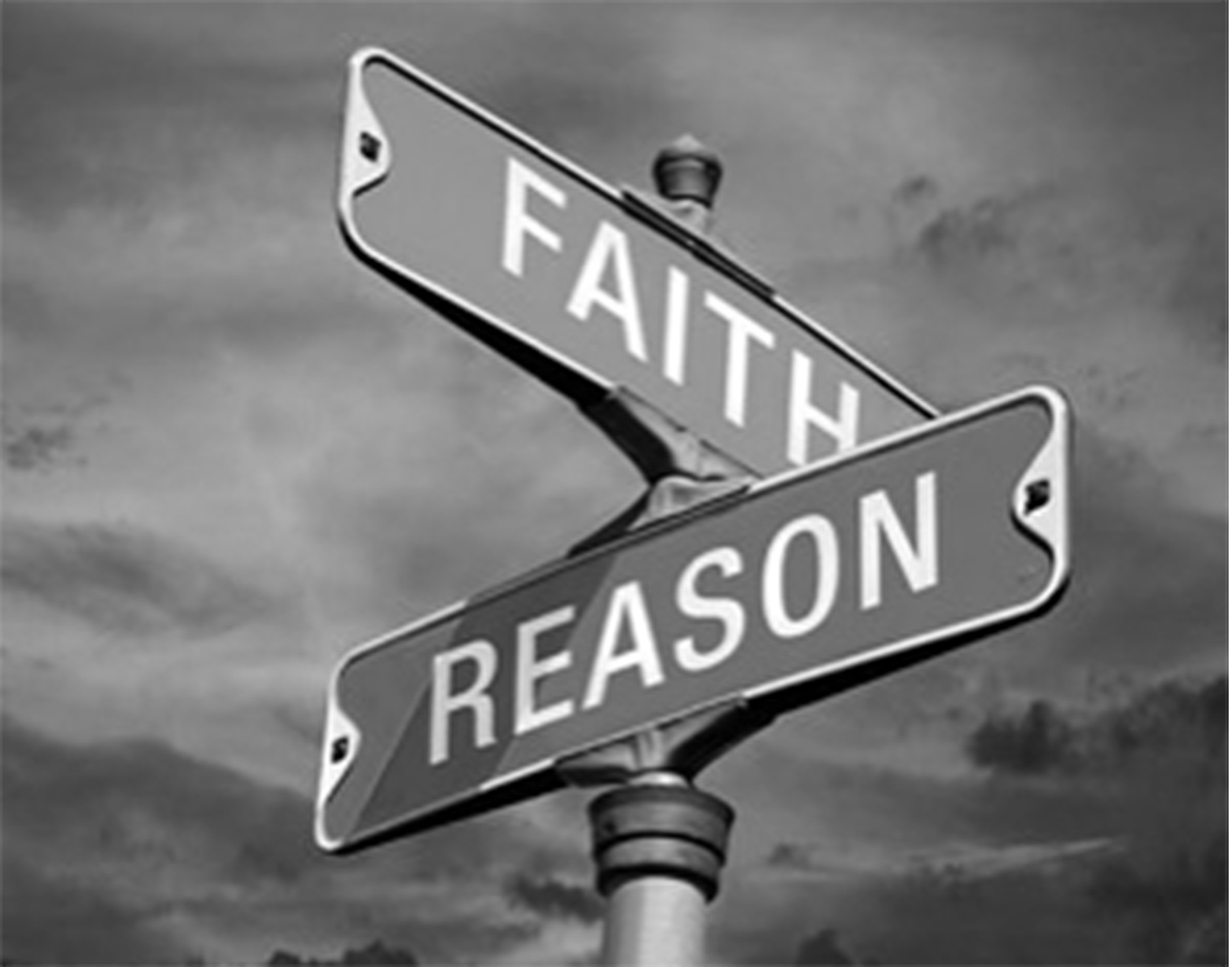Why is “faith” a virtue?
 The definition of the word “faith”—of the religious variety—changes every time I ask, but it seems like most people currently take it to mean something along the lines of belief in a transcendent being/realm that’s not necessarily verifiable logically or scientifically.
The definition of the word “faith”—of the religious variety—changes every time I ask, but it seems like most people currently take it to mean something along the lines of belief in a transcendent being/realm that’s not necessarily verifiable logically or scientifically.
By this definition, I could easily make a deity out of Bertrand Russell’s celestial teapot and worship it as part of my own religion—all because “it’s a faith matter.”
In no aspect of life but religion do we have a term that basically gives us license to believe whatever we want, whether or not there’s evidence for it. Why is this at all virtuous? I would argue that it’s the opposite of virtue to endorse a term that gives unsupported ideas credence. There are such things as bad ideas that don’t deserve serious or prolonged consideration.
So what is “faith” doing on our college’s list of core values—a liberal arts college no less? To quote the official statement verbatim, “Faith—The conviction that religious faith enriches and completes learning, that it is the bedrock of community, ethics, and service, and compels one to excellence in a divinely ordered world—informs our whole enterprise.”
Let’s break this statement down. How can religious faith enrich learning? The dogma that all religions partake of is the antithesis of open-minded free inquiry. The moment you admit a statement of religious belief into your life like, “Jesus is the son of God and the savior of humanity,” you’ve already partially closed your mind to any arguments/evidence that might disprove that statement.
If all religious institutions openly discussed the evidence against their claims about, say, the divine origins of certain books, religious faith as we know it today would appear in its true, intellectually untenable form. There is simply no reason to believe (as in the case of the Bible) that a contradictory collection of Bronze Age myths, laden with genocide, rape, torture, and countless other immoralities, is in any way the product of a transcendent being.
But you’d rarely (I daresay never) hear this discussed at an institution of faith. Why do we want this sort of faith at a place of supposedly unfettered reason and learning?
I’ll pass over the bit about community for brevity’s sake, but is faith really the bedrock of ethics? Religious faith not only seems to lack the divine morality it claims, it also perverts the innate moral faculties we all possess.
For instance, think back to the days of slavery and segregation—both of which were widely supported by many churches. Neither idea would have survived anywhere nearly as long without people finding divine consent in the Bible. It is when people think they have God on their side that they are truly capable of anything—which is why the suicide bombing community is entirely religious. Where does one get the idea and motivation for such atrocities except religious certainty regarding the next world?
I’ll take the bits about service and being compelled “to excellence” together. The primary motivation to service and excellence that the Bible offers are the rewards of Heaven and avoidance of the punishments of Hell. Thank goodness these are not the only reasons why people try to advance in this world, but they’re still commonly cited as motives to perform service.
My question is, why do we need such base and selfish motives at all? Let’s try to make this world a better place for its own sake and for the sake of our species’ continued survival. No eternal punishments or rewards are necessary.
My point with this is to encourage thought about our college’s mission statement—something we’re all implicitly a part of. Too many of us walk by the “faith” pillar in the Caf without stopping to think about what faith actually means as one of the core values of our college.
I don’t know about you, but when a college’s official mission statement says that faith in a Bronze Age, tribalistic deity “informs [its] whole enterprise,” I get a bit unsettled.
